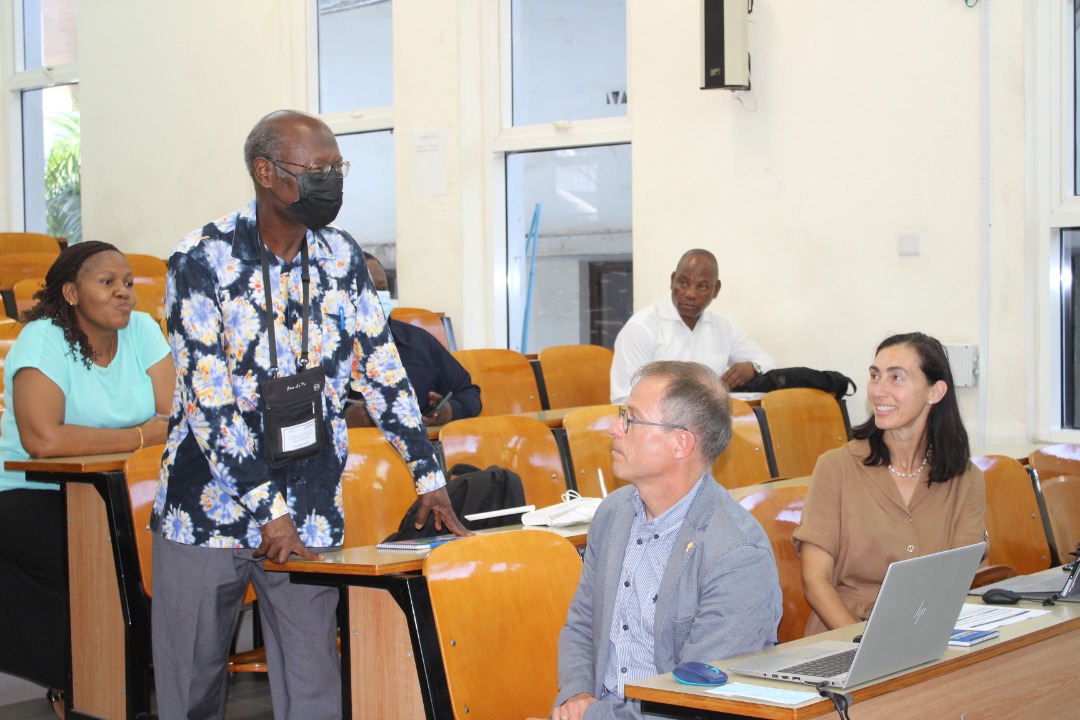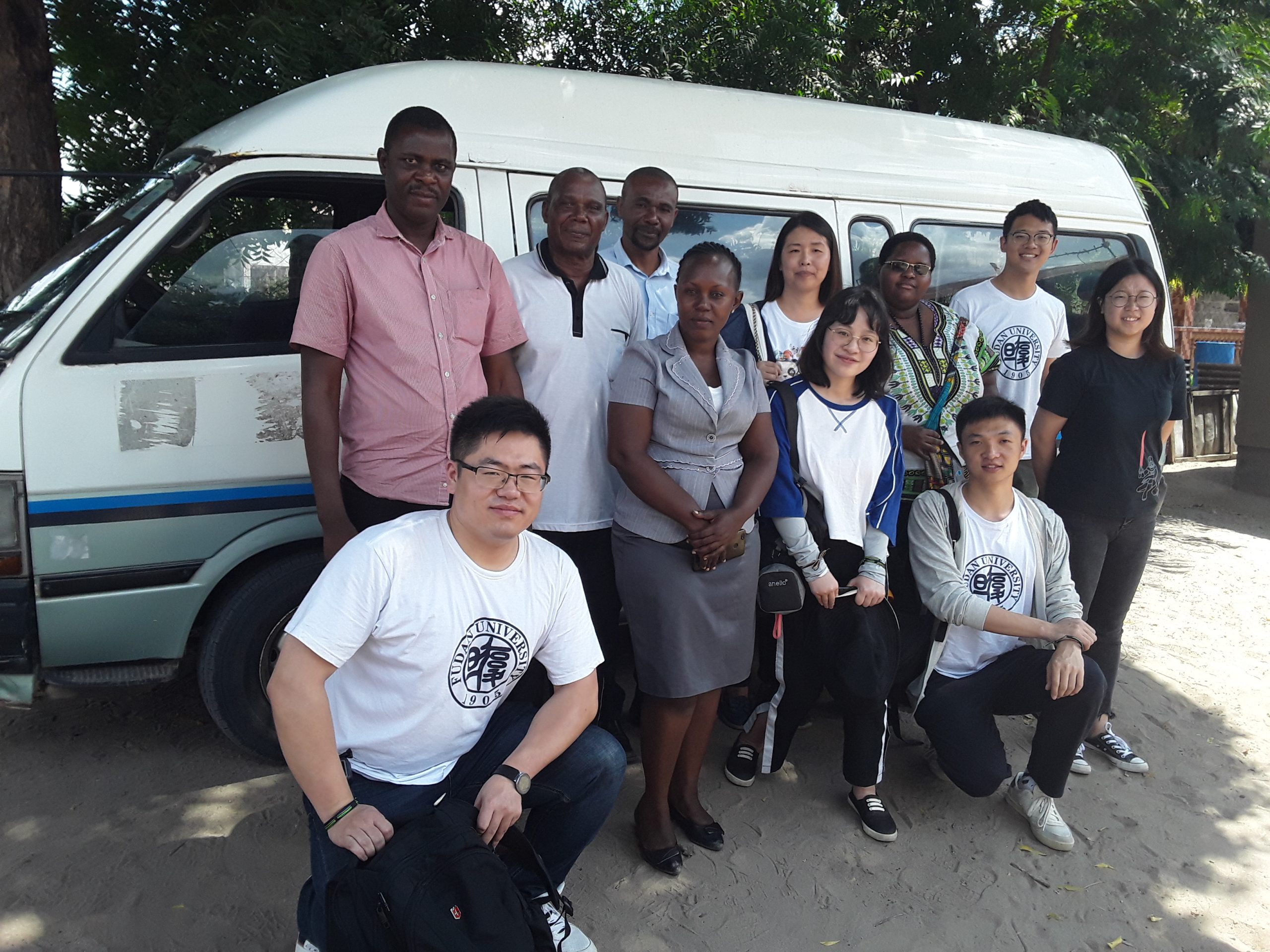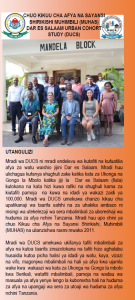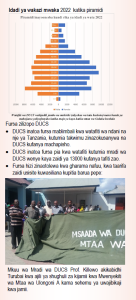About DUCS
The Dar es Salaam Urban Cohort Study (DUCS), initiated in 2011, is a pioneering Demographic Surveillance System (DSS) designed to monitor health and socio-demographic events in Dar es Salaam, Tanzania. Established through a partnership between the Havard T.H Chan School of Public Health and Muhimbili University of Health and Allied Sciences (MUHAS), DUCS covers approximately 100,000 residents across 20,000 households in the Ukonga and Gongo la Mboto wards of Ilala district.
Our Mission and Impact
The strength of DUCS lies in its ability to provide accurate and reliable data, offering unparalleled opportunities for researchers, funding agencies, and policy makers. Our platform supports nested studies that address complex health challenges, inform evidence-based interventions, and shape transformative policies to improve the well-being of urban populations.
In addition to its core surveillance activities, DUCS has laid the groundwork for numerous nested research projects that delve deeper into priority health areas. These include studies on maternal and child health outcomes, adolescent health behaviors, mental health prevalence, environmental exposures, and the social determinants of health. The platform has also been instrumental in piloting innovative technologies such as mobile-based data collection tools to enhance data quality and participant follow-up. These technological innovations not only streamline data collection but also position DUCS at the forefront of digital health research and implementation science in low-resource urban settings.
Beyond research, DUCS plays a critical role in strengthening local capacity and fostering a culture of data-driven decision-making. The platform provides hands-on training opportunities for students, early-career researchers, and public health professionals in epidemiology, biostatistics, and field data collection methods.

Prof, Japhet Killewo. DUCS, Principal investigator
Message from the Principal Investigator
As the principal Investigator of DUCS, I am delighted to welcome you to this unique platform. Our study serves as a beacon of excellence in both cross sectional and longitudinal research on communicable and non communicable diseases. Through annual household visits, we collect and update critical data on births, deaths, marriages, migration, water supply, sanitation, socioeconomic status, and food insecurity, This comprehensive dataset is an invaluable resource for understanding the dynamic health and social landscape of urban communities.
We invite you to explore the opportunities our platform offers for collaboration and partnership. Together, we can harness the power of data to drive meaningful change and advance the well-being of urban communities.
Projects Activities at DUCS



Major activities:
- Health and demographic Surveillance System (a platform longitudinaly monitoring of demographic dynamics (SINCE 2011)
- Epidemiology Surveys conducted as nested studies (Centre for nested studies)
Study conducted at DUCS
DUCS stands ready to support innovative, data-driven research that bridges epidemiological surveillance with actionable mental health interventions, ultimately contributing to improved health outcomes and informed policy for urban populations in Tanzania and similar settings.
The right side shows a summary of the studies conducted at DUCS.
Harnessing Longitudinal Data and Digital Technologies to Improve Adolescent Health
The aim was to implement a standardized adolescent health survey across nine countries, establish a framework for longitudinal data collection and evaluate a communication intervention.
Overweight and obesity during pre-pregnancy and Pregnancy in Tanzania
This study aims to determine the prevalence and identify modifiable risk factors focusing on nutrition and physical activity, for pre-pregnancy overweight and obesity among women intending to become pregnant in urban Dar es Salaam
Evaluating Personal and External Food Environment Influences on Diets Among PLHIV and families in Dar es salaam
Study components were qualitative interviews exploring food-related behaviours and challenges, Geo-spatial mapping of vendors and two waves of dietary intake surveys to assess nutritional patterns
Developing and Applying methods to elicit quality adjusted life years and the value of statistical life in large population based studies
This study aims to assess substance use, sexual risk behaviors, exposure to violence and mental health among adolescents; evaluate their physical activity, dietary behavior and healthcare expenditure and compare their health outcomes with other households
Longitudinal Data Collected


• Study locations: Ukonga and Gongo la Mboto clinics
• Study period: February to May 2023
• Gender distribution: 76.8% were women
• Age: Participants were 18 years and older
• ARV usage: All had been on ARVs for at least one year
DUCS STUDY ON ARV EFFECTIVENESS AND HIV DRUG RESISTANCE: RESULTS, CONCLUSION AND RECOMMENDATIONS
ii. HIV Drug Resistance: • The study found that 10% of patients using the TLD regimen (tenofovir + lamivudine + dolutegravir) had HIV strains resistant to TLD. • Over 99% of people living with HIV in DUCS were already on the TLD regimen. • Due to reduced effectiveness of the previously used TLE regimen (tenofovir + lamivudine + efavirenz), especially after resistance developed, Tanzania transitioned to TLD in 2019.
• Controlling drug resistance: Since resistance to dolutegravir has been observed, more effort is needed to ensure patients are on the appropriate medication. Early identification of resistance is essential to switch patients to effective alternatives. This study highlights the importance of conducting various


